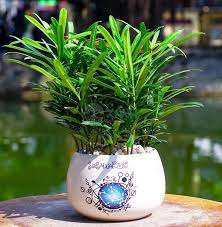
Ancestor worship is a deeply rooted practice in many cultures, especially in East Asia, where it plays a crucial role in maintaining familial harmony, respect for the past, and ensuring the well-being of future generations. One of the most vital aspects of these ceremonies is the incorporation of Feng Shui, an ancient Chinese practice that focuses on creating harmonious environments that encourage positive energy, or Chi. This article delves into how Feng Shui is utilized in ancestor worship ceremonies, ensuring that these sacred rituals are conducted in a way that brings blessings, prosperity, and peace to both the living and the deceased.
1. Understanding Feng Shui and Its Role in Ancestor Worship
Feng Shui, which translates to “wind-water,” is an ancient Chinese practice that involves arranging the elements in a way that promotes a flow of positive energy. It is based on the belief that the arrangement and orientation of objects, buildings, and spaces influence the health, fortune, and happiness of those who dwell within them. This practice has been employed in various aspects of daily life, from architectural design to arranging furniture in homes, and most importantly, in ceremonies such as ancestor worship.
In the context of ancestor worship, Feng Shui is used to ensure that the rituals are conducted in an environment that attracts the right type of energy. The placement of offerings, incense, and ceremonial tools are carefully chosen to align with the principles of Feng Shui. This not only honors the spirits of ancestors but also enhances the likelihood of receiving their blessings, guiding future generations in the pursuit of peace and prosperity.
2. The Importance of Proper Location and Orientation
A key principle of Feng Shui is the location and orientation of spaces, which greatly influence the flow of Chi, or vital life force. This is particularly important in the practice of ancestor worship, as the goal is to honor the deceased while creating an environment conducive to positive energy.
a) Choosing the Right Location for the Altar
The placement of the ancestral altar is one of the most important aspects of ancestor worship. In Feng Shui, the altar should be placed in a prominent and respectful position within the home, often in the east or north direction. These directions are associated with auspicious energy in Feng Shui:
- East represents growth, health, and family. This direction symbolizes the rising sun, making it ideal for ceremonies that seek to honor ancestors and invite positive energy into the family home.
- North represents career, wisdom, and ancestors, aligning with the spiritual aspect of ancestor worship. This direction is often chosen for placing altars because it represents the connection with the ancestors and the wisdom they provide.
Additionally, the altar should not be placed in locations that are associated with negative energy or “Sha Chi,” such as near bathrooms, kitchens, or cluttered spaces. Such places are believed to disrupt the peaceful flow of energy, negatively affecting the purpose of the ceremony. A quiet and clean space should be designated to ensure the ritual’s success.
b) Orienting the Altar and Ritual Tools
Feng Shui also emphasizes the correct orientation of the altar and the tools used during ancestor worship ceremonies. The altar should be positioned to face a direction that is in harmony with the family’s Kua number (personal energy number in Feng Shui), which can enhance the connection between the living and the deceased.
Furthermore, the incense and offerings must be placed carefully, ensuring that they face the right direction. Offerings are often arranged with the use of yin-yang principles in mind, with yin (symbolizing the spiritual world) on one side and yang (representing the material world) on the other. This balance creates harmony during the ceremony, making the offerings more potent in inviting blessings from the ancestors.
3. The Role of Symbolism in Feng Shui During Ancestor Worship
In addition to the physical aspects of Feng Shui, the use of symbolism plays a key role in ensuring that the energy flows positively during ancestor worship ceremonies. Certain symbols, colors, and materials are believed to attract positive energy, enhance the connection with ancestors, and create a harmonious atmosphere.
a) Colors and Elements
In Feng Shui, each color is associated with a specific element and energy. These colors are often incorporated into the decorations, clothing, and offerings used during ancestor worship:
- Red is associated with fire and symbolizes prosperity, vitality, and good fortune. It is often used to attract good luck and is a common color for altar cloths, candles, and decorations during ancestor worship.
- Gold or yellow represents earth and symbolizes wealth and stability. These colors are commonly used in the offerings and decorations to enhance prosperity and encourage a strong connection to ancestral roots.
- White is associated with metal and represents purity and clarity. It is often used in offerings such as rice and wine, symbolizing the respect and purity of the ritual.
Each element is also represented in the offerings, such as fruits (wood), water (water), and incense (fire). This careful balance of the five elements ensures that the energy during the ceremony is aligned and flowing harmoniously.
b) Specific Symbols Used in Ancestor Worship
In addition to colors, certain symbols are used to communicate respect, invoke blessings, and bring good fortune to the family. The dragon and phoenix, two of the most powerful symbols in Chinese culture, are often incorporated into the altar decorations to symbolize balance, power, and spiritual connection.
- The Dragon represents strength, authority, and protection. It is often associated with male energy, wisdom, and the protection of the family.
- The Phoenix symbolizes rebirth, renewal, and transformation, making it a fitting symbol for ancestor worship, where the connection between past and present is central to the ceremony.
By incorporating these symbols into the ceremony, the family seeks to honor the ancestors’ wisdom and attract positive energy to their home and lives.
4. The Timing of Ancestor Worship Ceremonies
Another important element of Feng Shui in ancestor worship is the timing of the ceremony. In Feng Shui, timing is key, as the energy of the universe flows in cycles, and certain times are considered more auspicious than others. To align with these cycles, ancestor worship ceremonies should ideally be conducted during lunar festivals or special family anniversaries, as these times are thought to be when the spirits of ancestors are most active.
a) The Lunar Calendar and Auspicious Dates
The lunar calendar is deeply tied to Feng Shui practices, as it reflects the cyclical nature of time. Certain days and months are considered more auspicious for ancestor worship due to the alignment of cosmic forces. The Tomb Sweeping Festival (Qingming), the Mid-Autumn Festival, and the Chinese New Year are just a few of the key dates when ancestor worship is most commonly performed. These festivals are believed to offer a harmonious time for connecting with the ancestors, and the energy during these periods is said to be optimal for bringing prosperity and good fortune.
b) The Hours of the Day
According to Chinese Feng Shui principles, certain hours of the day, aligned with the Chinese Zodiac, are particularly auspicious for performing rituals. These hours, known as Shichen, are divided into 12 two-hour periods, each associated with a specific animal sign. For instance, the hours associated with the Dragon (7-9 AM) and the Tiger (3-5 AM) are considered especially favorable for offering respect to ancestors, as they are seen as times when spiritual energy is particularly potent.
5. Maintaining Balance and Respect for Ancestors
Feng Shui practices in ancestor worship are not only about attracting positive energy but also about maintaining balance and respect for the ancestral spirits. The rituals performed during ancestor worship are a way to honor the sacrifices made by previous generations, ensuring that their wisdom continues to guide the family in the right direction.
a) Cleansing and Purification
Before beginning an ancestor worship ceremony, it is essential to purify the space. This can involve using smoke from incense or sage to clear any negative energy that may have accumulated. This purification ensures that the energy in the space is fresh and open for positive Chi to flow freely, creating an ideal environment for the ancestors to receive offerings.
b) Regular Rituals and Offerings
Feng Shui emphasizes the regularity of rituals and offerings, suggesting that ancestor worship should not be limited to one-time ceremonies but should be a consistent practice. By maintaining this ongoing connection with the ancestors, the living family members ensure that their ancestors’ energy remains strong and continues to guide and protect them.
Conclusion: Feng Shui as a Vital Element in Ancestor Worship
The practice of ancestor worship is deeply rooted in respect, tradition, and connection with past generations. By integrating Feng Shui principles into these ceremonies, families are able to create an environment that is both spiritually harmonious and energetically conducive to receiving the blessings of their ancestors. Through the careful arrangement of the altar, the use of auspicious colors and symbols, the selection of the right time and space, and the respectful offering of food and incense, Feng Shui ensures that ancestor worship ceremonies bring positive energy, good fortune, and prosperity to the family for generations to come.
Feng Shui, with its focus on harmony, balance, and the alignment of energies, provides the perfect framework for honoring those who have come before, while inviting future blessings. It is a practice that transcends time, linking the living with their ancestors and the energy of the universe in a continuous flow of Chi.









